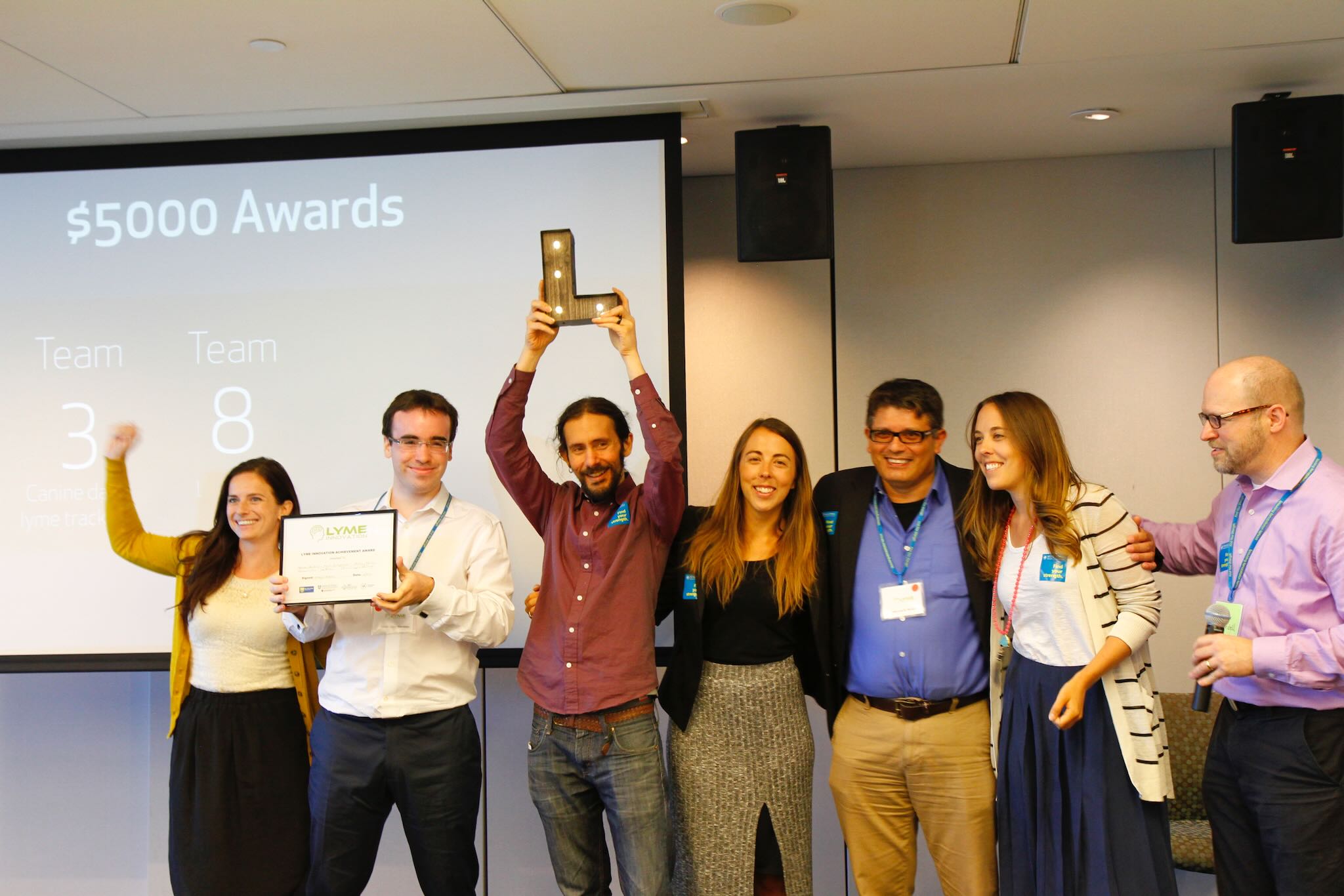Patient-Centered Symptom and Vital Sign Tracking for Lyme Disease Care
Date:
I presented our team’s work at Lyme Innovation, the first-ever Lyme-disease–focused hackathon, held at the Microsoft NERD Center in Cambridge and organized by Spaulding Rehabilitation’s Dean Center for Tick-Borne Illness, the Veterans Affairs Center for Innovation, MIT Hacking Medicine, UC Berkeley, and Harvard Medical School. The three-day event brought together clinicians, scientists, engineers, entrepreneurs, and patients to develop new solutions for Lyme disease. Our project was selected as one of the finalists and received a $5,000 award.
Working closely with Lyme patients whose lived experiences shaped clinical priorities, our team developed a patient-centered symptom and vital-sign tracking system designed to support both patients and clinicians. As one of the five finalist teams selected from sixteen multidisciplinary groups, we were also invited to present our work later that year at the White House Open Data Innovation Summit.
Lyme disease presents with unpredictable, fluctuating symptoms, making it difficult for clinicians to assess progression or therapeutic benefit. Our proposed system enabled patients to log symptoms, daily functioning, treatments, and physiological measurements, while providing clinicians with structured longitudinal data to reveal trends, correlate symptoms with interventions, and personalize care. By combining patient-generated health data with open-data principles, the project aimed to reduce diagnostic uncertainty, improve shared decision-making, and empower individuals navigating chronic Lyme disease.



